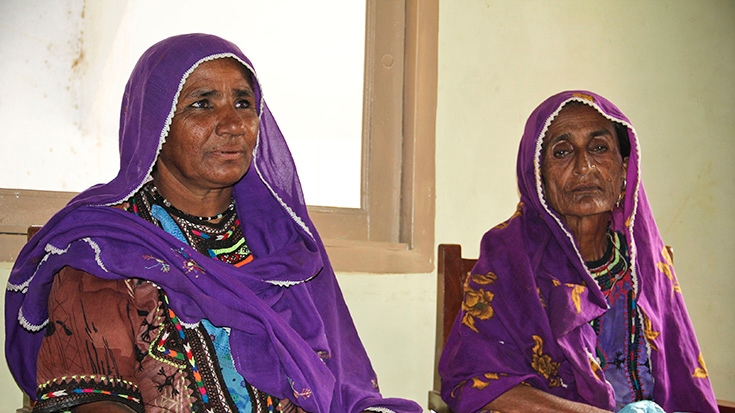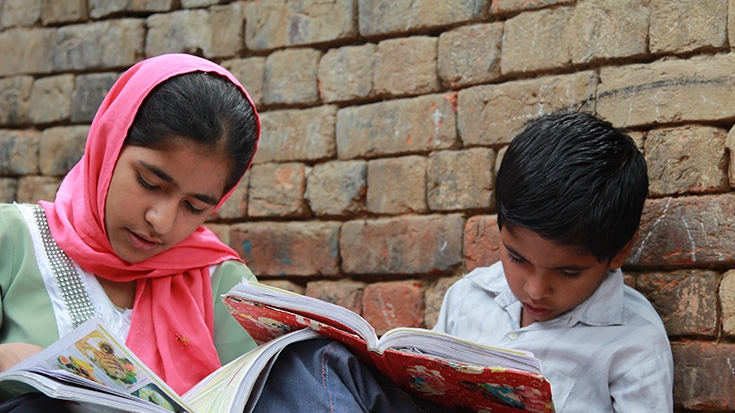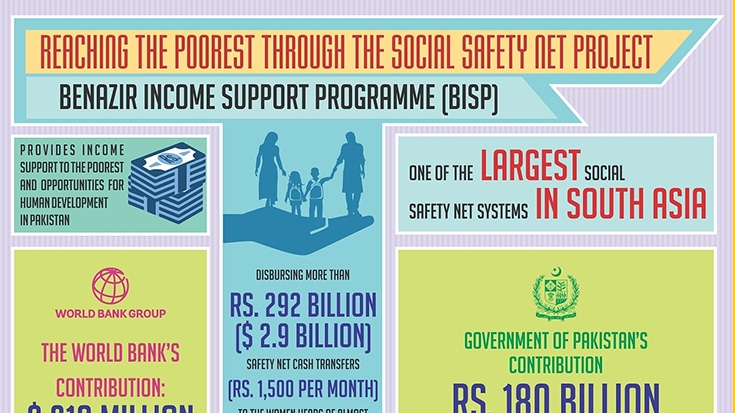Synopsis
Supported by IDA’s technical assistance since 2009, Pakistan has established the Benazir Income Support Program (BISP), a flagship national safety net system, which is one of the largest in South Asia. The program currently provides income support in the form of predictable monthly cash transfers of US$15 to almost 4.8 million families (approx. 18 million people) of the poorest households for consumption smoothing as well as investments in human capital development. Up to the present time more than US$ 2.9 billion has been disbursed to BISP beneficiaries out of whom 93% of beneficiaries receive the cash transfers through technology based payment mechanisms (Debit Cards, Mobile Phones, Smart Cards). The program plans to reach 5.5 million families in the next financial year.
The program has successfully established a National Socio-Economic Registry (NSER) through the use of an objective targeting system, hosting a database of more than 27 million households (approx. 167 million people) – the first in South Asia. More than 30 federal and provincial social sector programs are currently using the Registry to improve their pro-poor targeting performance. BISP has also rolled out the Co-responsibility Cash Transfers (CCT) program, linking cash transfers to primary school education, which is being implemented in 32 districts in all provinces and regions. After a successful pilot in 5 districts, enrolment process is currently underway in 24 districts. To date more than 726,000 children have been enrolled in the program out of which over 329,000 children have taken admission in schools.



